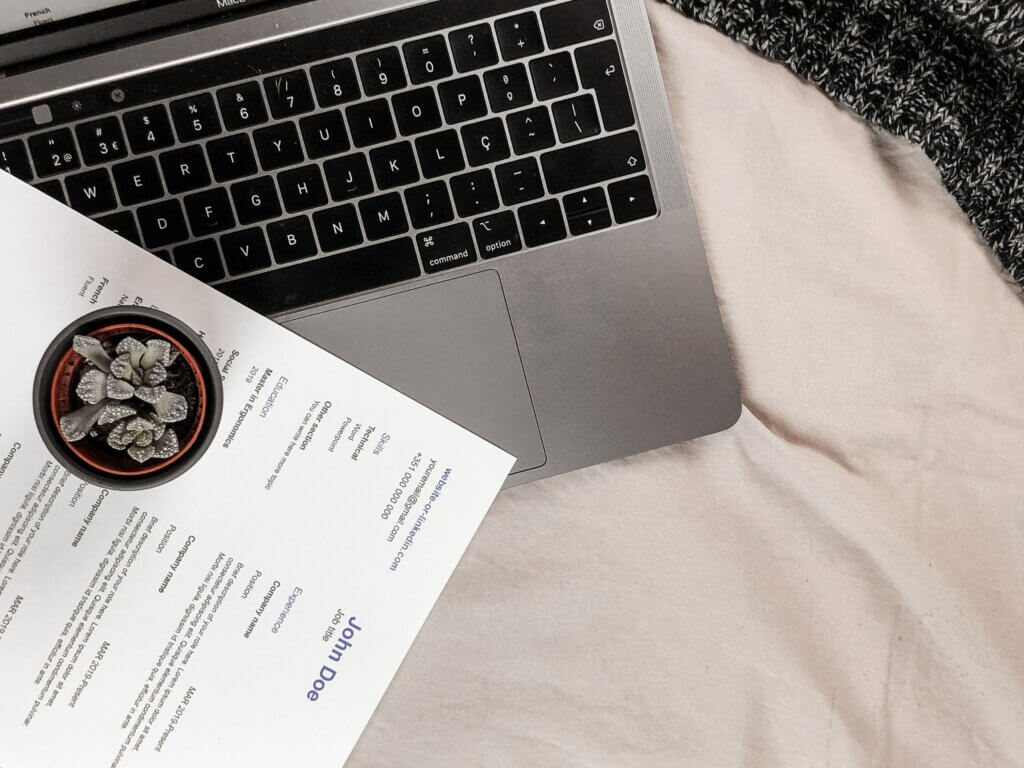So, you’re starting university soon and wondering how to support yourself financially while you study? Getting a part-time job can help ease any money worries usually faced by students.
To apply for a job in the UK you need to write a Curriculum Vitae (CV) to let potential employers know about your past experience and skills you can offer their company. You may think that when applying for a part-time job a CV is not as important as when applying for a full-time job. This isn’t the case as employers still want to know they are hiring the right person for the job.
The question you’re probably thinking is how to write a CV for part time work. In this article, you will find a range of tips and examples to help you write a winning CV.
Things to remember when writing your CV
Companies that are looking for part-time workers are looking for indicators on your CV that show they will be a good fit for their companies’ culture. They want to know that you are flexible and are able to work the hours they need, they want someone who is dependable and doesn’t let them down at the last minute.
It is important to include transferable skills in your CV. You may not have worked behind a bar before but if you have experience in customer service, organisation, or ordering stock then these skills would be useful in a bar job. Make sure to sell your skill set to make you stand out against other candidates.
Being a university student will mean that you are only able to work certain hours or days in a week. Make this clear on your CV so that employers can see when you are available. Most international students are allowed to work part-time and up to 20 hours a week when studying in the UK (you can usually work full time over the summer). It is important to check your immigration status or visa to double-check this. Sometimes there are restrictions on the type of work you can do, as well as the number of hours.

Information to include on your CV
- Make sure to add all your personal information including your full name, address, and contact information.
- List in date order your work experience, describing important skills and responsibilities that are relevant to the job you are applying for. Adding some achievements such as ‘winning employee of the month’ at your last job can help potential employees see how valuable you will be to their company.
- List relevant qualifications in date order and any courses you are currently taking.
- Include a personal statement at the top of your CV of about 100 words to outline who you are, your experience, and explain you are looking for part-time work.
- Make sure to send a cover letter with your CV.
Writing your cover letter
- A cover letter accompanies a CV and is an essential part of applying for a job.
- A cover letter makes it clear which job you are applying for and why you are handing in your CV at that specific company. Include the job title and any reference for that job at the beginning of your letter.
- If sending your CV electronically it is now standard practice to also send a cover letter, so it is essential that you take some time to get it right. After all, there is no point spending lots of time perfecting your CV if you fail at the last hurdle and hand in a generic ill-thought-out cover letter.
- When sending your CV over email, the email itself can act as your covering letter with your CV attached. Format your email as normal there is no need to format it like a paper letter, as explained below.
What to include in your cover letter?
When writing your cover letter there are a few things you need to remember. Keep your letter short and to the point, only include relevant information. Don’t reuse the same template over and over, make sure to personalise information for the job you are applying for.
Incorporate the following into your cover letter and you will get a job in no time:
- Include your name, address, and contact details. These should be in the top right-hand corner of your letter.
- Write the date of your letter, underneath your contact details.
- Add the contact details of your addressee, including their job title and the company name and address. Start these details on the next line of your cover letter, but on the left-hand side of the page.
- Address your readers. When starting your letter use the addressee’s name if known. Use ‘Dear sir/madam’ if names are not known.
- Add the job reference. Before officially starting the letter add the job reference e.g., RE: customer service position
- Introduce your CV, write a couple of short paragraphs to explain who you are and why you would be a good fit for the job being advertised.
- End and sign your letter. In most cases end with, “Yours faithfully” and then your name.

Edit and proofread
Once you have completed your CV and cover letter it is very important to proofread and edit them to make sure there are no spelling, grammatical or formatting errors. Employers will be unlikely to ask you for an interview if it appears you haven’t taken the time to make sure your CV is error-free.
Care should also be taken when formatting your CV. Keep information concise and relevant. Keep the page layout simple and try not to bunch up information together. Make your CV easy to read and eye-catching to get potential employers’ attention.
Where can I find jobs in the UK?
Remember when working in the UK you will need a national insurance number. Apply for one now so there is no delay in you starting work once you find a job. Phone the JobCentre Plus NI Allocation Service on 0845 600 0643.
How to find a job:
- Check boards in your student union to see if any jobs are being advertised
- Ask in local shops, cafes and bars, hand out your CV if they have vacancies
- Search your local council website for jobs
- www.indeed.co.uk
- www.gumtree.com/jobs
- www.cv-library.co.uk
- www.reed.co.uk/jobs/student-jobs-in-london
- www.totaljobs.com/jobs/student/in-london
- https://www.studentjob.co.uk/part-time-job/london
Although the competition for part-time jobs can be high by following the tips in this article you have a great chance of landing a job compared to others. If you show you are enthusiastic, flexible, and willing to work hard you will be rewarded by potential employers with a job to help you earn some extra money.
Whether you need the extra money to help pay bills, to pay for luxuries or to save for something more expensive remember to double-check your immigration status and visa so you are certain you are not working outside regulations.
Working part-time in the UK is a great way to integrate yourself into our culture and way of life, make new friends and develop the many skills you already have. Good luck in finding a part-time job after writing the perfect CV and cover letter.


